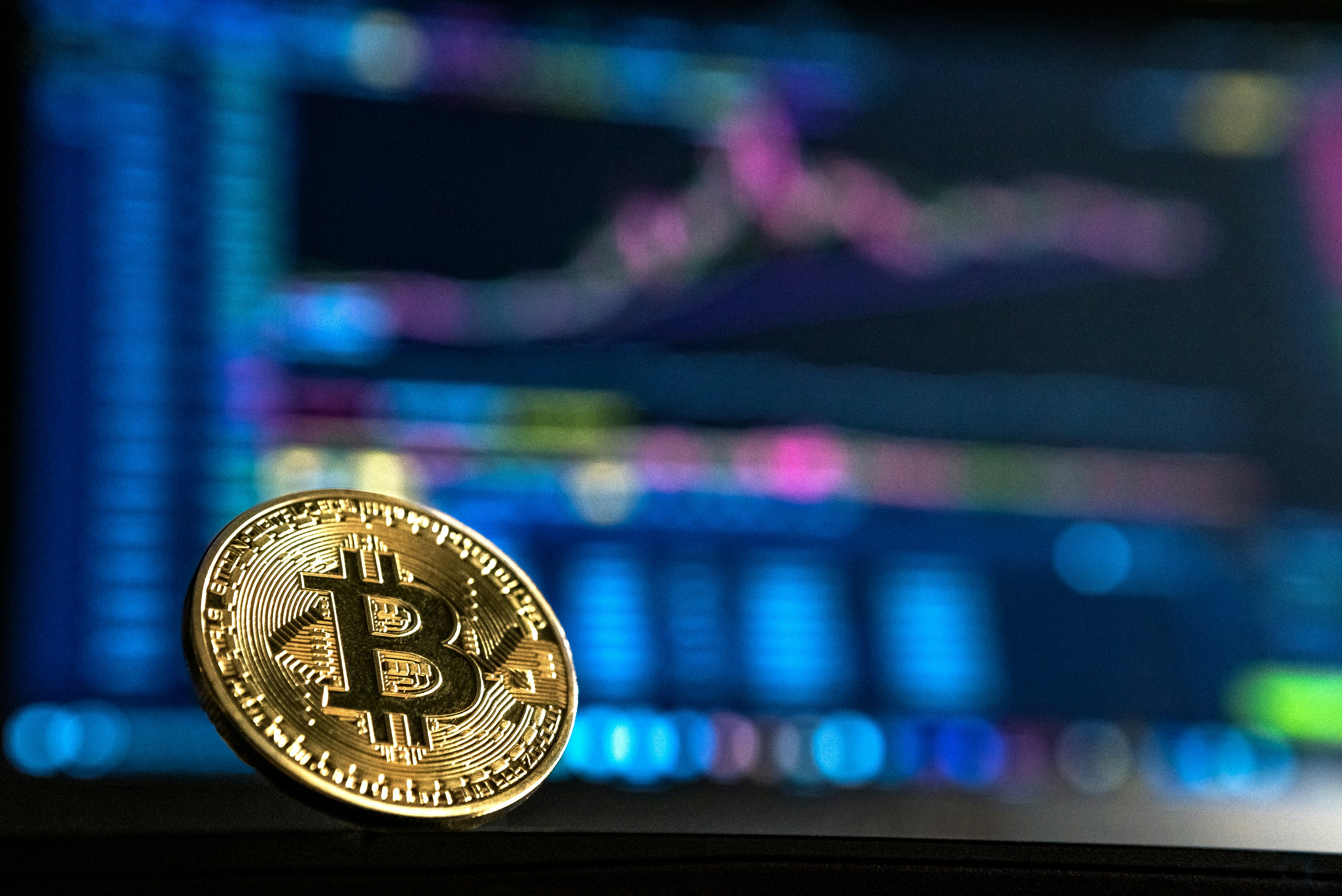Bitcoin surged past $60,000 this week, marking its highest point since November 2021. The heightened demand for digital currency was so significant that even the crypto-trading platform Coinbase experienced a crash on Wednesday.
Following a challenging crypto winter that initiated in 2022, there's anticipation that bitcoin could soon surpass its previous records. This optimism stems from the influx of investments into recently established bitcoin spot ETFs (exchange-traded funds).
In tandem with Bitcoin's rise, the price of ether, the native token of the Ethereum network, also experienced a notable boost, surpassing $3,300. This level hasn't been witnessed since April 2022. Investors are speculating that Ethereum ETFs may gain approval from the U.S. Securities and Exchange Commission (SEC) in the near future, further contributing to the positive momentum.
What’s the big deal about the new bitcoin ETFs?
Less than twelve months ago, 75% of Americans familiar with cryptocurrency expressed doubts about its safety and reliability, as per a Pew Research Center survey. However, the fortunes of the world's largest cryptocurrency shifted in late 2023, following a federal appeals court decision that deemed the SEC's rejection of Grayscale Investments' application for converting its Grayscale Bitcoin Trust into a spot bitcoin ETF as wrongful. The SEC, choosing not to contest the court ruling in October, paved the way for a resurgence.
By January, the SEC greenlit nearly a dozen new spot bitcoin ETFs, signaling a shift in acceptance. These ETFs, akin to traditional ones for assets like gold or silver, own the actual underlying asset—now including bitcoin—closely mirroring its value, accounting for trading costs or fees.
Ric Edelman, the founder of the Digital Assets Council of Financial Professionals, emphasized the uniqueness of the recently approved spot bitcoin ETFs, stating, "There have not been any ETFs like this before." While existing ETFs often focus on crypto-related stocks or bitcoin futures trading, these new ETFs directly invest in and own bitcoin. The SEC's decision simplifies investors' access to bitcoin, eliminating the need for crypto exchanges and addressing storage or security concerns. Edelman noted that these ETFs are considered safe in terms of custody, as they are regulated by the SEC, providing investors with a secure way to gain bitcoin exposure in brokerage accounts, including IRAs.
Does bitcoin belong in an investment portfolio?
Thinking about jumping into Bitcoin due to all the excitement? Before you do, it's important to understand that Bitcoin and other cryptocurrencies are like speculative bets – you're hoping their value will go up quickly. Unlike traditional investments, these assets don't generate income like interest or dividends, and people who invest in them are often looking to make quick profits from price changes. Keep in mind, though, that the value of cryptocurrencies can be unpredictable, so it's essential to be cautious and do your research.
"In the traditional perspective of financial assets, you provide capital to a company, and it utilizes that capital to create something, generating profits that determine the company's value based on future expectations," explained Michael Finke, a wealth management professor at The American College of Financial Services. "However, with bitcoin, it lacks any inherent production, making its valuation entirely speculative," he added.
This might not be a significant concern for those witnessing Bitcoin's soaring prices. After all, who needs dividends or interest when the value of bitcoin has surged by 40% in just two months?"
You may believe in the perpetual rise of Bitcoin prices, akin to the stock market's historical upward trajectory. However, it's crucial to note that unlike stocks representing companies creating tangible products or services, Bitcoin lacks a similar utility. Its usage as a payment method remains highly restricted.
Moreover, the stock market's wealth accumulation is often attributed to reinvestment, where dividends automatically reinvest in shares, fostering compounding growth over time— a mechanism distinct from the dynamics of Bitcoin's value.
Around 69% of the S&P 500 index's cumulative return from 1960 to 2022 was attributed to dividends rather than price increases, as revealed by Hartford Funds research. To illustrate, a $10,000 investment in the S&P 500 in 1960 would have surpassed $4 million by 2022 with dividend reinvestment and compounding. Without these factors, the same investment would have amounted to approximately $641,000.
It's noteworthy that cryptocurrencies like bitcoin, lacking dividend earnings, rely solely on price appreciation for returns. According to Finke, the allure of recent price surges tends to attract investors, particularly those influenced by sentiment, fostering a fear of missing out.
Bitcoin’s price remains highly volatile
Bitcoin's allure lies in its exhilarating price surges, especially evident in recent months. However, it's essential to navigate the flip side of this volatility. In 2022, a challenging year for stocks, the S&P 500 faced a 19% decline, while Bitcoin plummeted over 60%.
Financial advisor Edelman emphasizes Bitcoin's speculative nature and historical turbulence. Despite this, he sees merit in including it in a long-term portfolio, suggesting a conservative allocation of 1% to 5%. This approach aims to balance the potential gains with the inherent risks, recognizing Bitcoin's unique role in a diversified investment strategy.
It no longer serves as the diversifier it once was.
Despite the ongoing debate about the correlation between stock and cryptocurrency prices, many investors turn to bitcoin and other cryptocurrencies as a means of diversifying their portfolios. The concept of spreading risk across various asset classes is embraced, aiming to mitigate the potential impact of significant losses.
Recent research adds to the discussion, indicating a growing correlation between stock and bitcoin prices. According to a 2023 working paper by the International Monetary Fund, the correlation between bitcoin and stock prices was relatively low before 2020 but has been on the rise since the second half of that year. One possible explanation proposed is the increasing likelihood of institutional investors having exposure to both bitcoin and stocks.
Georgetown University researchers observed a rising correlation between Bitcoin and the S&P 500, especially during crises. The study highlights that this correlation "markedly intensified during COVID, the Russian invasion of Ukraine, and the crypto winter, suggesting Bitcoin's limited efficacy as a hedging asset in these circumstances."
Bitcoin probably isn’t coming to your 401(k)
Bitcoin's recent surge beyond $60,000 has drawn attention, particularly with the introduction of new bitcoin ETFs. These ETFs provide a direct avenue for investors to enter the bitcoin market without navigating crypto exchanges. However, caution is advised, as bitcoin remains a speculative and highly volatile asset. While the potential for substantial returns exists, it comes with inherent risks. Experts recommend limiting bitcoin allocations in a portfolio to 1% to 5%. Furthermore, the growing correlation between stock and bitcoin prices challenges the traditional role of bitcoin as a diversification tool. Despite its potential, widespread adoption in 401(k) plans is not expected due to fiduciary responsibilities and risk considerations.
"According to Finke, plan sponsors and their consultants approach the addition of investment options to retirement plans with great caution. The U.S. Department of Labor has also issued a warning to 401(k) plan administrators, advising them to be careful when considering the inclusion of crypto assets in their plans. In a March 2022 memo, the department highlighted the considerable challenge of evaluating these assets, emphasizing the difficulty even for expert investors to discern facts from hype."
So, should you invest in bitcoin?
Ultimately, the choice to invest in Bitcoin, whether through ETFs or acquiring digital coins, is a personal decision. If you opt to invest, it's advisable to maintain a diversified portfolio with assets like index funds, avoiding speculative investments beyond what you can comfortably risk. Reflect on your motivations before buying Bitcoin – is it based on a belief in its long-term investment potential or influenced by FOMO (fear of missing out)?
Investors who are drawn to assets solely based on recent value increases often face ongoing setbacks, as noted by Finke. The recent surge in Bitcoin appears to exemplify such allure, capturing considerable investor attention while possibly lacking sustained future performance.








